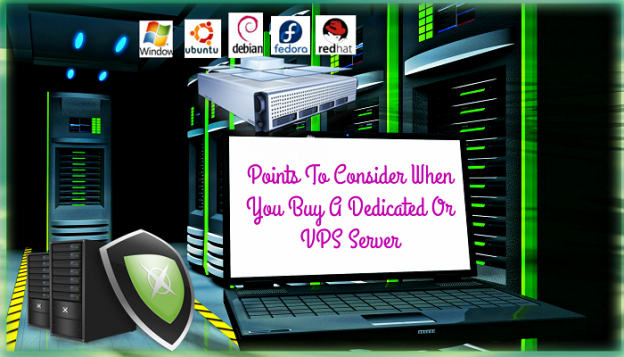Installing servers does not have to be a Herculean task because the provider usually takes care of this for you. But, to be able to exploit the features of the hosting plans and to optimize the server to boost your business, you need to make some changes to default settings. Your web host will typically install and also configure the server for you, the main programs and services which you need. However, you can request the support staff to analyze and install your servers properly to optimize default settings and cater to your business demands well. So, once you have already bought a virtual private server or a dedicated server, you may look into these following factors:
- Modifying Security Policies: Since you own the server and enjoy admin access to it, you can decide on the degree of client access or security limits. This means that you will be essentially provided with some fundamental security tools. These may not be enough to keep away advanced threats or risks. So, you may have to request and empower the host support teams for tightening the security arrangements according to your specifications. In other words, you may ask the provider to set the host and IP-based limits for WHM, SSH and the Plesk login panels. You could ask them to disable unused ports and vulnerable PHP or system function, configure the password strength, and install more firewalls and antivirus detection measures according to your needs. You could also make sure the users are stopped from overriding the PHP configuration values in the .htaccess files and php.ini files.
- Optimizing Memory Resources Management: Your CPU and RAM will determine the system performance. But you may fail to get a high loading speed even with a high-end server unless the server has been properly optimized to work together with your site. So, there are going to be default PHP and MySQL settings in the control panels for servers which have been set up. You need to ensure that the LAMP settings are properly adjusted depending on your application needs and the resources available. When you host free and open source applications, you can get information about the environment settings from the README section of the software. But, when you customize an open source app like a CMS or script, you can request developers to coordinate with the tech support staff to make the necessary arrangements. When the host can successfully optimize the LAMP settings, your site performance is improved. You can also prevent server overloading.
- Backup and Recovery Arrangements: When your hosting provider offers you paid or free backup services, you should definitely get these optimized to suit your needs. The host tech support staff will either configure backups according to your specifications or will wait for your directions. It is your duty to request support teams to adjust the backups from time to time, whether it is on a daily, weekly or monthly basis. You should ideally set both the local and remote options for cloud backups to make sure that data is secure even if the server malfunctions.
- IP Address: It is important to send information to your support staff for installing the email servers according to the best practices available. You also need to keep follow-ups in case of problems with the IP address.
- Software Updates and Upgrades: Site performance improves when the software is regularly updated and upgraded. It is better to choose automatic upgrades and also request the support staff to perform manual upgrades when needed. This will ensure that messages are not overlooked and the support teams are on board as soon as there are server issues. Routine updates will deploy new security arrangements and bug fixes to enhance performance. The support teams will also send alerts if there are major security issues. Such emails must never be overlooked and the support teams must be immediately called to install patches. To get information about vulnerabilities and new releases, you can subscribe to emails from leading software vendors such as cPanel and CentOS. It is advisable to install the latest Apache, PHP or MySQL versions on any new server. When the server runs outdated versions of software, you need to contact the web developers to check for script compatibility. The team must also carry out upgrades as and when needed.
- Maintenance and Administration Alerts: If you find that the server must be rebooted because of some programming updates or it must be shut down to carry out some support tasks, you must ideally keep these for the weekends or during midnight. These are periods which are likely to witness least traffic. Side by side, you must also make sure that there is another portal on another remote server which can store downtime updates regarding the server or instances of server disruptions. Your clients and staff must be duly kept informed about all of this through threads and emails to prepare them in advance.
Related Story : How To Use Dedicated Server?






 Live Chat
Live Chat